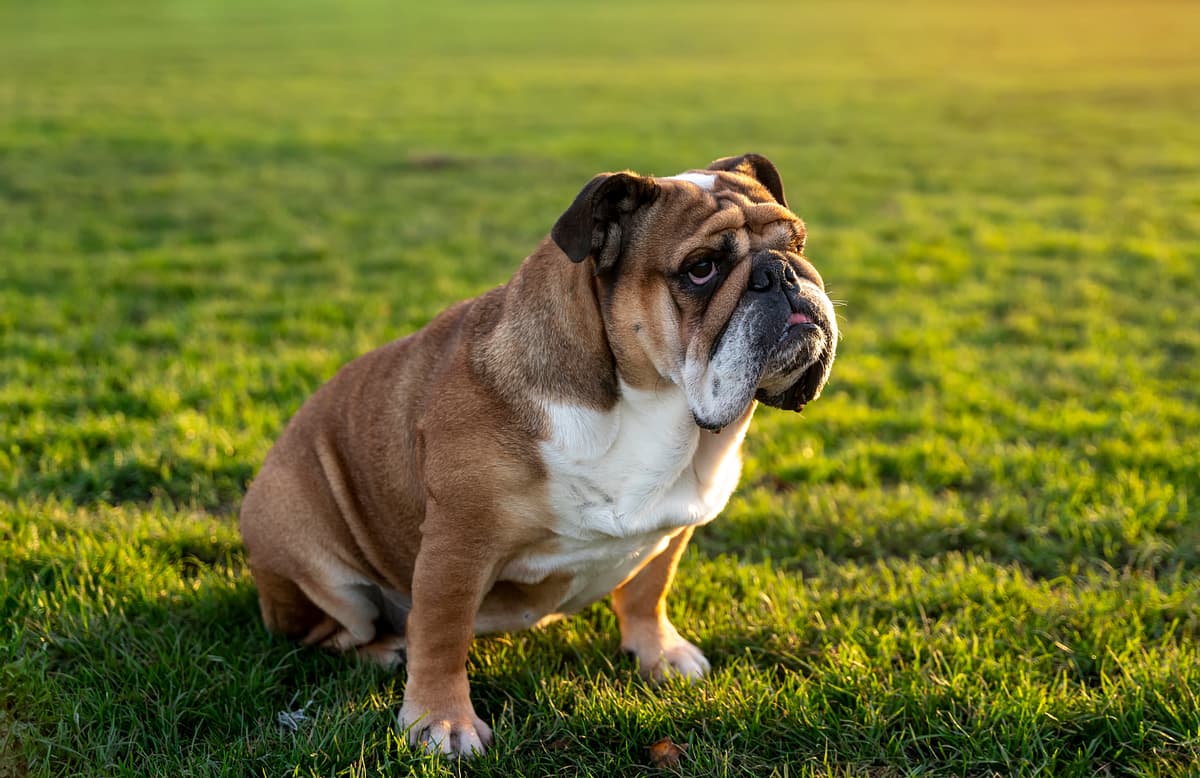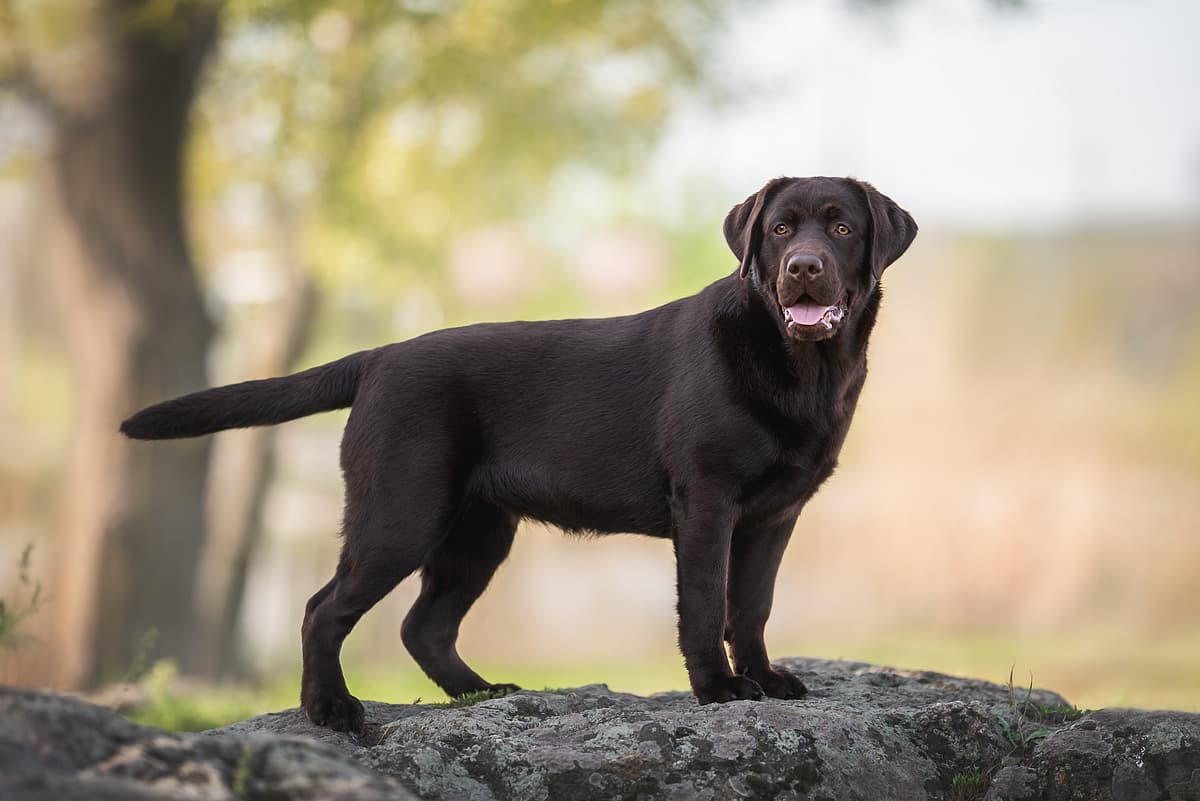Old English Bulldog vs Labrador Retriever
Discover the differences between Old English Bulldog and Labrador Retriever to make the best choice for your situation.
Try different breeds

Old English Bulldog
Strong, loyal, and affectionate, this breed thrives as a devoted companion with a calm yet protective nature. Distinctive looks and a gentle spirit make it a beloved family favorite.

Labrador Retriever
Eager, friendly, and intelligent, this breed loves being part of an active family. Their gentle nature and loyalty make them outstanding companions for all ages.
Quick comparison
Medium
23–36 kg
Short, smooth
8–10 years
20–30 kg
Moderately active
Large
29–36 kg
Short double coat, water-resistant
10–12 years
25–32 kg
High energy
Personality & behavior
Compare the personality traits and behavioral characteristics of both breeds.
Old English Bulldog
Affectionate with family, generally sociable with others
Learns basic commands, may need repetition
Moderate exercise needs, enjoys daily walks
Enjoys games but not overly exuberant
Adjusts well to new environments and routines
Labrador Retriever
Warm and sociable with people and animals
Quick learner, responds well to training
High stamina, enjoys active pursuits daily
Loves games and interactive activities
Adjusts easily to new situations and environments
Care needs
Exercise, grooming, and daily care requirements
Old English Bulldog
Hip dysplasia, respiratory issues
Labrador Retriever
Hip dysplasia, elbow dysplasia
Suitability
How well each breed fits different living situations and families
Old English Bulldog
Fairly suitable
Generally easygoing but may need firm training for stubbornness
Good option
Moderate exercise needs and calm demeanor suit smaller spaces
Somewhat suitable
Enjoys play but lacks high stamina for rigorous activities
Very friendly
Patient and gentle with children when properly socialized
Possible conflicts
Can be territorial with other pets, early socialization is important
Not ideal
Dislikes being alone and may develop separation anxiety or destructive habits
Labrador Retriever
Great choice
Patient and eager to please, Labradors are manageable for most first-time owners.
Not ideal
Labradors need space and exercise, so apartments can limit their activity needs.
Perfect fit
High energy and stamina make them excellent for active individuals or families.
Highly suitable
Gentle temperament and playful nature make them safe and loving with young children.
Very friendly
Generally sociable and get along well with other dogs and pets.
Prone to anxiety
Extended alone time can lead to boredom and destructive behaviors in this breed.
Breed strengths
What each breed excels at and their best qualities
Old English Bulldog
- Loyal and devoted to family
- Confident and stable temperament
- Good with children when socialized
- Moderate exercise needs suit urban living
- Strong natural guarding instincts
Labrador Retriever
- Friendly and sociable with people and dogs
- Highly trainable and eager to please
- Excellent with children and families
- Strong retrieving and swimming abilities
- Generally adaptable to various living situations
Challenges & considerations
Potential challenges and considerations for each breed
Old English Bulldog
- Prone to joint and hip issues
- Can be stubborn during training
- Sensitive to extreme heat or cold
- Needs consistent early socialization
- May show dog aggression without guidance
Labrador Retriever
- Prone to obesity without portion control
- Can become destructive if under-exercised
- Heavy seasonal shedding requires regular grooming
- May develop hip or elbow dysplasia
- Needs significant daily physical activity
Ready to choose your perfect breed?
Learn more about each breed or compare other breeds to find the perfect match for your lifestyle.
Discover more helpful tools
Make use of our other free tools to get the most out of your pet experience
